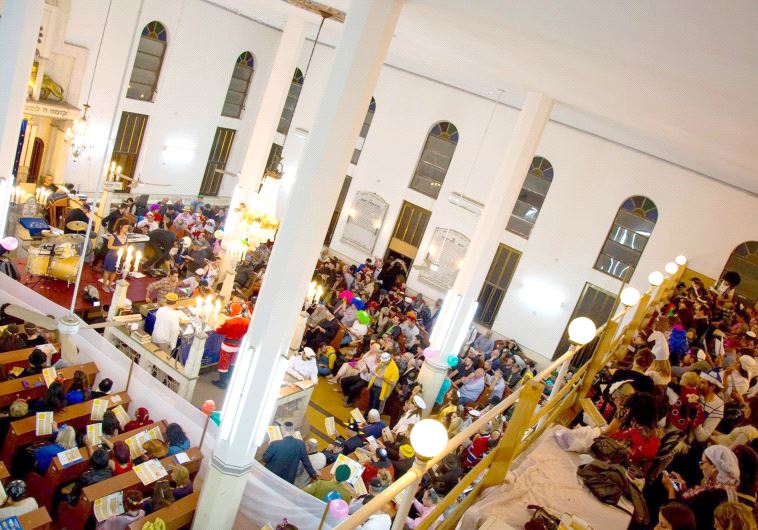Tzohar and Ohr Torah Stone holding 400 Purim readings around country
"The lack of opportunities for young women to be involved in religious services has become a big educational problem for girls."
 A packed house for the Purim megila reading in 2016 at the Tel Aviv International Synagogue
A packed house for the Purim megila reading in 2016 at the Tel Aviv International Synagogue